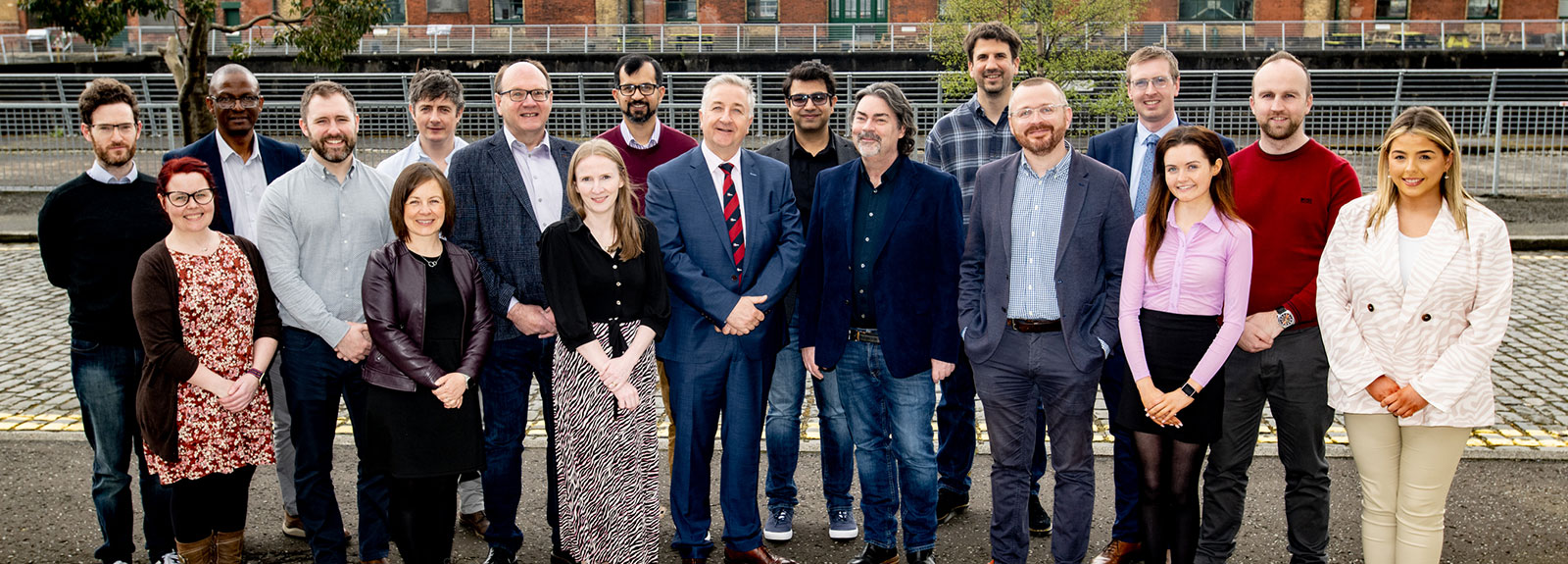Momentum One Zero pilot projects focused on health and agri-food research activity in partnership with industry and communities.
Through Momentum One Zero’s pump-priming fund and the EPSRC Impact Acceleration Accounts (IAA) funding supporting researchers to better share their knowledge to help find solutions to real-world problems.
Momentum One Zero pilot projects focused on health and agri-food research activity in partnership with industry and communities.
Through Momentum One Zero’s pump-priming fund and the EPSRC Impact Acceleration Accounts (IAA) funding supporting researchers to better share their knowledge to help find solutions to real-world problems.
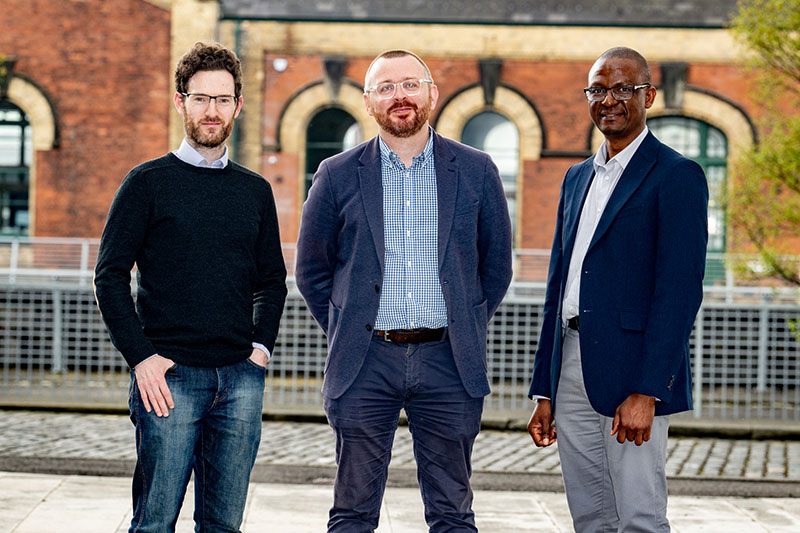
Real-Time Tracking for Monitoring of Ear Biting in Pigs
Computer vision techniques are being used to improve animal welfare in this project, which brings together Dr Niall McLaughlin from CSIT and Professor Ilias Kyriazakis and Dr Anicetus Odo from IGFS with Raft Solutions, a company focused on enabling applied solutions to sustainable health and welfare in livestock.
The project combines multi-object-tracking technology developed at CSIT with a deep-learning-based method of detecting ear biting in pigs developed by IGFS. It aims to tackle an issue which causes disease outbreaks in pigs and impacts production, estimated to cost the UK pig herd more than £850m a year.
It’s hoped early detection of ear biting through automated monitoring can allow intervention to improve animal welfare and prevent disease, meaning that potentially harmful antimicrobials don’t need to be used.
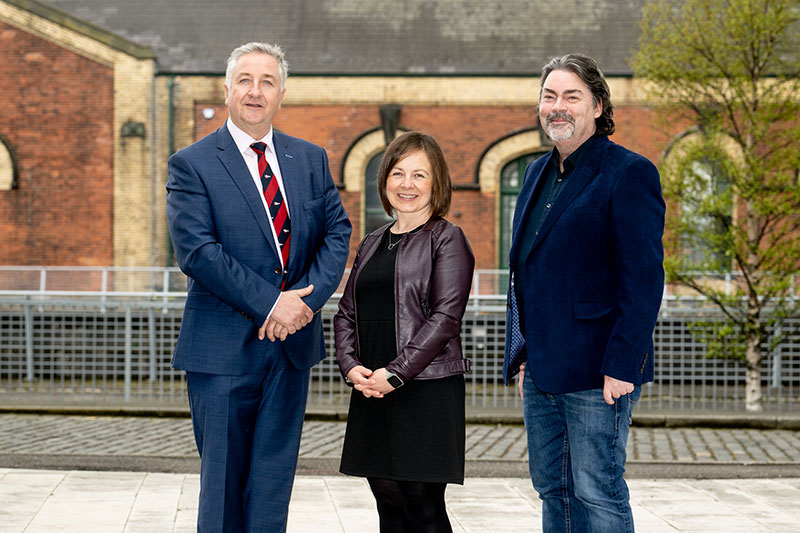
Personalised medicine for the 21st Century
This ambitious personalised medicine project using high performance computing is being carried out by Professor Gary Hardiman and Dr Thai Son Mai in partnership with Altomics Datamation.
It aims to be a starting point for detecting the 20 to 30% of previously unidentified peptides in the body.
It will allow the discovery of novel disease-specific proteoforms and biomarkers. Work on this complete proteoform atlas represents a new era in protein-based molecular diagnostics in a similar way that the Human Genome Project has led to huge progress in understanding the basis of disease at the genomic level.
Although calculating and indexing all potential human proteoforms is a moonshot project, it is a critical first step to advance real-time molecular phenotyping and improve personalised medicine with huge global potential.
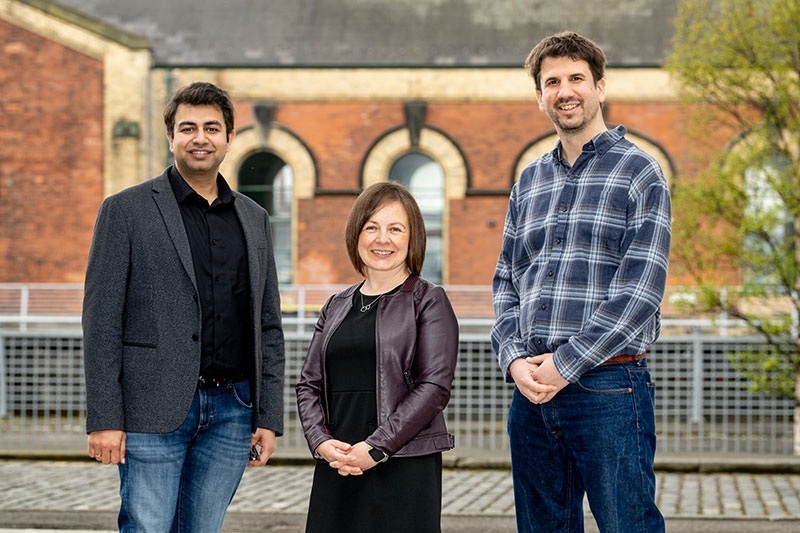
AI for water quality monitoring
Professor Michalis Matthaiou, Dr Vishal Sharma and Professor Lisa Connolly are working with NI Water on a project which applies toxicology with predictive machine learning to detect harmful chemicals in water.
This will result in a fast and innovative warning approach for water providers about the risk of water containing toxic or endocrine disrupting chemicals.
The project has huge global potential considering that, according to a report by the World Health Organisation and Unicef, an estimated 771 million people don’t have access to clean drinking water.
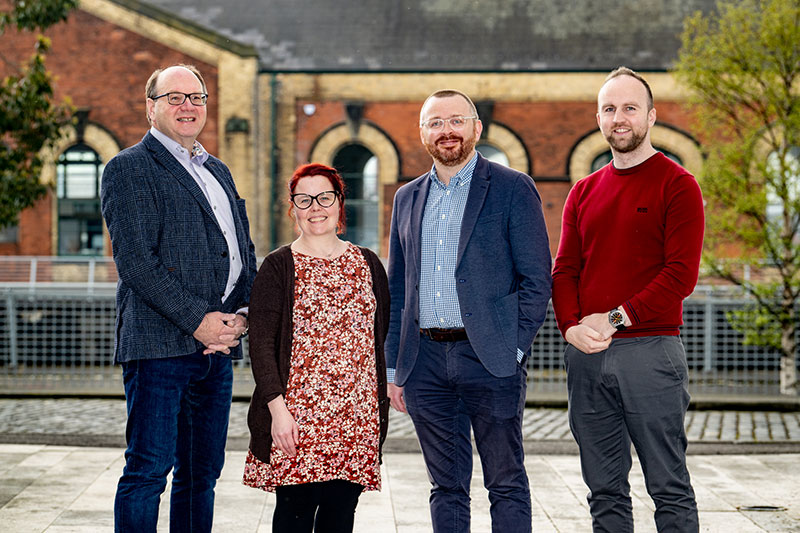
Whole farm sustainability measuring tool
Leading food processors including Dale Farm, Glanbia, ABP, Dunbia, Foyle Food Group, Moy Park, Lakeland Dairies and WD Meats are partnering with Professor Nigel Scollan, Dr Ryan McGuire and software engineer Emer Campbell on this whole-farm sustainability measuring tool.
It uses scientifically informed algorithms in an app to measure, report and verify sustainability.
It allows farmers to measure their performance and operate within the parameters of sustainability, delivers continuous environmental and climate ‘smart’ feedback to drive behavioural change, and collates evidence of production footprint for national and global markets.
The app also aims to protect the mental health of farmers and support achieving climate neutrality by 2050.
It has the potential to support a 5% gain in output (£71m per year), and a 5% reduction in feed costs (£35m per year) to increase income for the agriculture sector in Northern Ireland by over £100m a year.
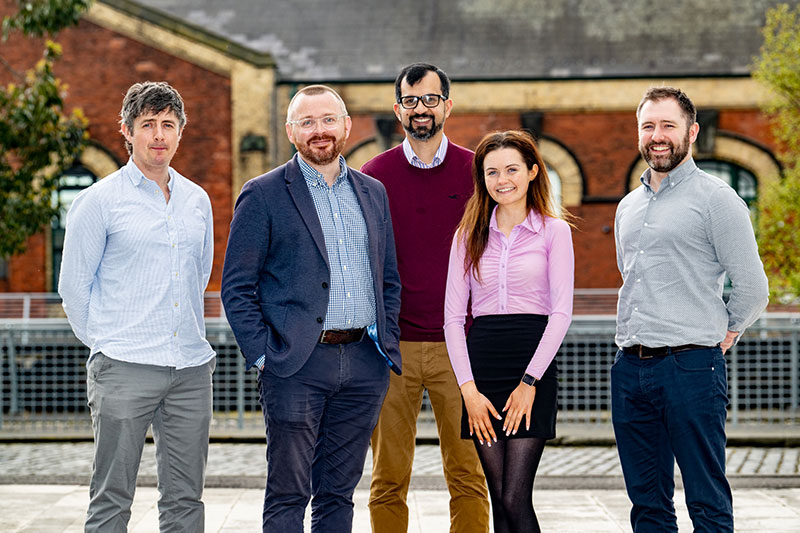
Smart City-zens – a citizen science project with the Market community
Dr Gareth Robinson from Queen’s Communities and Place (QCAP) and Dr Hamza Shakeel from the School of Electronics, Electrical Engineering and Computer Science (EEECS) are working in partnership with the Market Development Association (MDA) in south Belfast on a citizen science project, called Smart City-zens.
It aims to support underserved communities build capabilities to use data to tackle urban challenges such as pollution, biodiversity, climate change or future food production.
The broad objective is to support ‘intelligent, innovative communities’ to achieve agency over their own data and to establish a platform for community co-design and inclusive innovation.
This is being piloted in the Market community with young people aged between 16 and 18, in the context of the area being one of the few located within the footprint of Smart Belfast. Participants co-create and carry out a programme of ‘community sensing’ across local sites of economic and social value, using low-cost sensor technologies to gather data on wellbeing issues that are important to residents.
Once they complete the project, participants qualify as ‘Community Researchers’ to support the activity of the Market’s ‘Community Innovation Ecosystem’. It is hoped that by supporting communities to gather environmental data on issues affecting their neighbourhoods, it can drive informed community decision-making around innovation infrastructure and improve the lives of residents.
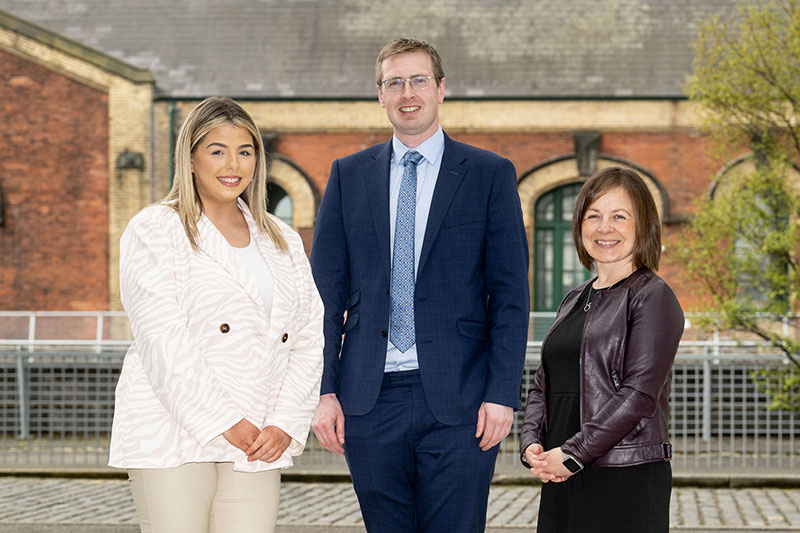
Empowering people living with dementia and promoting dementia friendly communities
Dr Richard Gault from the Centre for Data Science and Scalable Computing is working with colleagues at Momentum One Zero and Professor Christine Brown-Wilson from the School of Nursing and Midwifery, and Dementia NI on a project to design a mobile application called the Digital Dementia Hub to support people living with dementia.
Informed by those experiencing dementia and extending upon the work of Lauren Watters (BEng in Computer Science including Professional Experience, QUB-2023), this project will see a team of software engineers from Momentum One Zero develop a proof-of-concept app to support people living with dementia in the community.
The concept is to deploy a series of secure tablet devices running the app in busy public locations such as supermarkets, transport hubs, coffee shops or libraries akin to the placement of other assistive devices such as defibrillators. If someone living with dementia becomes disorientated or requires assistance staff or the general public in the vicinity can help the person to use the app which utilises facial recognition to identify registered members of the Digital Dementia Hub. The app can then provide assistance as well as connecting the person to their support network.
This app develops work undertaken by Dementia NI on the Herbert protocol launched in 2022 . With over 20,000 people diagnosed with dementia in Northern Ireland alone, the Digital Dementia Hub has the potential to make a significant impact.
